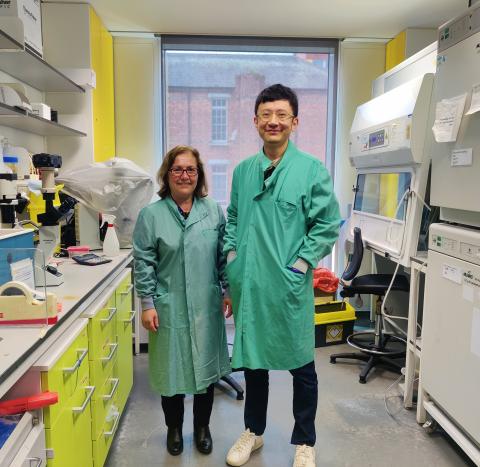The idea
Understanding more about genetic variation in ovarian cancer tumours can help researchers find ways to improve the body’s own immune response to cancer, hopefully leading to new treatments.
Project background
High grade serous ovarian cancer (HGSOC) is the most common form of epithelial ovarian cancer. In the UK, it's responsible for over six in every 10 cases of epithelial ovarian cancer. This is why research into new and kinder treatments is so important to ensure that more people can live better for longer.
The immune system is our first defence against cancer. However, cancer cells can evade this defence sometimes due to a mutation that stops the body’s immune system from having any effect on them. Immunotherapy is a type of treatment that can improve the immune system's response and has been hugely successful in practice for the treatment of other cancers.
Unfortunately, because HGSOC tumours often have mutations that suppress the body’s natural immune response, researchers have not yet been able to find an immunotherapy that works well for ovarian cancer.
Project plan
Professor Ghaem-Maghami’s research has already identified several mutations in HGSOC tumours that could suppress the immune system's response. For example, mutations of a protein called DCAF15 reduce the killing-effect of immune cells - and over half of HGSOC tumours have these mutations.
This new project will develop new models to learn more about the role of DCAF15 in ovarian cancer and understand how it switches off immune response. Researchers will also study a drug that reduces function of DCAF15 and improves immune responses which may go on to be tested in clinical trials.
This important work will take us a step closer to developing an effective immunotherapy for ovarian cancer in the future.
Fact file
Researcher: Professor Sadaf Ghaem-Maghami
Institution: Hammersmith Hospital, Imperial College London
Project dates: June 2023 to May 2026
Funding awarded: £230,000
Project status: in progress




